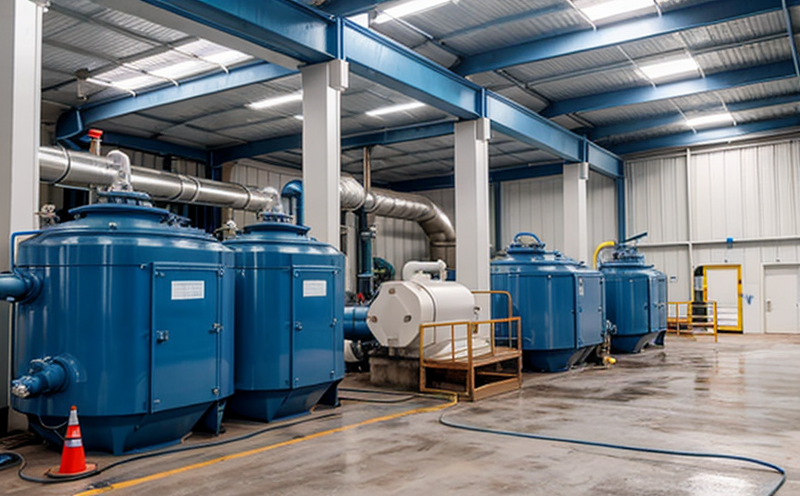ASTM D7573 Onboard Ballast Water Treatment Validation Testing
The ASTM D7573 standard outlines a protocol for validating ballast water treatment systems (BWTS) on board ships. This testing is critical in ensuring compliance with international regulations, particularly the International Maritime Organization's (IMO)'s Ballast Water Management Convention which aims to reduce harmful organisms and pathogens transported via ballast water.
Testing under ASTM D7573 involves the use of a standardized test organism, typically the bacterium E. coli, to assess the effectiveness of the treatment system in reducing viable microorganisms below acceptable limits. This process ensures that ships meet stringent environmental standards before discharging ballast water into port environments.
The testing procedure is rigorous and involves multiple stages including inoculation of the treated water with the test organisms, incubation periods for growth assessment, and subsequent analysis to determine compliance. Compliance officers responsible for ensuring a ship's adherence to environmental regulations must be well-versed in this process.
Quality managers overseeing the development and maintenance of BWTS should also understand ASTM D7573 testing as it directly impacts product performance and marketability. R&D engineers tasked with improving treatment efficiency can leverage insights from these tests to innovate within regulatory constraints.
The test requires a controlled environment where the treated ballast water samples are exposed to specific conditions designed to mimic real-world scenarios encountered during ship operations at sea or in port. Proper specimen preparation, including dilution and inoculation methods, is crucial for accurate results.
Instrumentation plays a vital role in ASTM D7573 testing, utilizing both qualitative and quantitative analysis techniques such as flow cytometry, microscopy, and molecular biology assays. These tools provide detailed information about the presence and concentration of viable microorganisms post-treatment.
Compliance officers responsible for navigating complex regulatory landscapes will find value in understanding ASTM D7573 as they ensure their vessels comply with global standards. This testing not only protects marine ecosystems but also promotes sustainable maritime practices worldwide.
In summary, ASTM D7573 validation testing is essential for maintaining environmental integrity and ensuring compliance with international regulations regarding ballast water management on ships. By following this protocol accurately, stakeholders involved in marine equipment testing can contribute positively towards preserving ocean health while adhering to legal requirements.
Applied Standards
| Standard Reference | Description |
|---|---|
| ASTM D7573-18 | Test Method for Determination of Compliance with Ballast Water Management Requirements Using Onboard Treatment Systems. |
| ISO 22416-2:2019 | Methods for the Assessment of Ballast Water Treatment Systems - Part 2: Performance Testing. |
| EN 12845:2013 | Guidelines for the Design and Operation of Ships with Regard to the Prevention of Pollution from Ships. |
Quality and Reliability Assurance
- Use of standardized test organisms (e.g., E. coli) for consistent evaluation.
- Inoculation procedures ensuring uniform distribution within the sample.
- Incubation periods tailored to optimize growth conditions for target microorganisms.
- Data collection methods incorporating multiple analytical techniques for comprehensive analysis.
- Repeatability and reproducibility studies conducted to validate test results.
International Acceptance and Recognition
The ASTM D7573 standard has gained widespread acceptance among maritime nations due to its robustness in validating ballast water treatment systems. Countries like the United States, European Union member states, Australia, and others have adopted or referenced this standard in their regulations.
Ships operating internationally are required by law to undergo ASTM D7573 testing at specified intervals. This ensures ongoing compliance with global environmental standards. Laboratories accredited according to international standards can perform these tests reliably and accurately, providing peace of mind for ship owners and operators.
The standard's recognition extends beyond national boundaries; it is also embraced by various maritime associations and organizations committed to sustainable ocean practices. Compliance with ASTM D7573 helps establish a vessel’s reputation as environmentally responsible, which can be advantageous in competitive markets.





